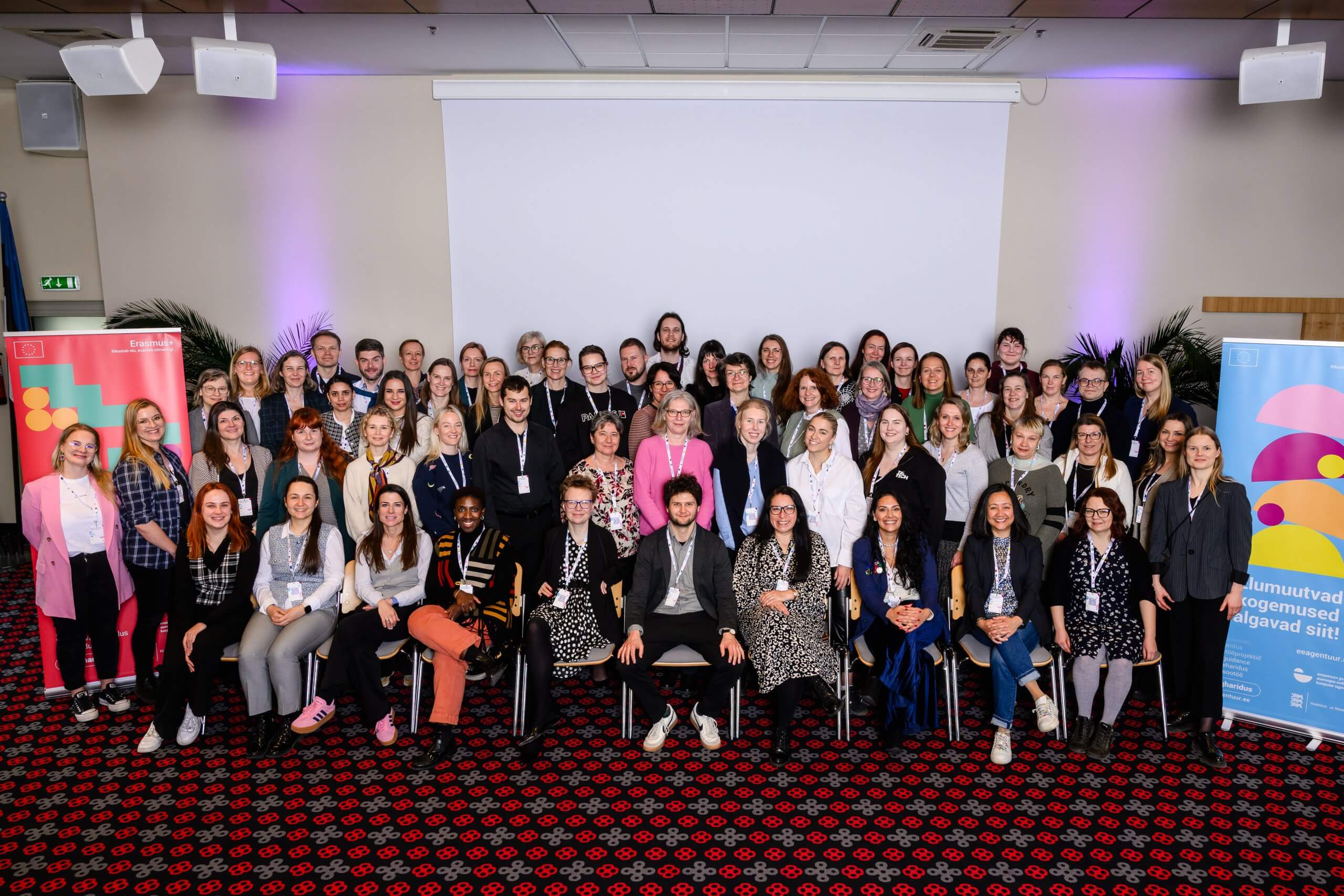Stay in the loop! Subscribe to our mailing list
On 26 – 28 March 2025, another edition of the Inclusion ACAdemy has come to an end with a final conference in Tallinn, hosted by the Estonian National Agency (Harno). Around 60 participants from Czechia, Hungary, and Estonia have participated in several online sessions during last autumn to finish their course with the in-person event, which was designed and delivered as a collaboration between ACA, Support Centre for Inclusive Higher Education (SIHO) and Stella Saliari, independent consultant and moderator.
The conference programme started with a keynote lecture by Terezia Rostas, a Consultant on Roma education strategies, who argued that visibility is essential, pointing out that the absence of certain groups from academic spaces is telling in itself. She has asserted that "We don’t need perfect systems; we need brave ones," highlighting the importance of taking bold actions over striving for perfection. Education, according to Terezia, should not be confined to universities alone, but should also reach into non-academic communities, particularly those that lack diversity. Following Terezia's keynote, the panel discussion delved into the systemic support required to create an inclusive working environment. A recurring theme was the importance of lived experiences alongside data, underscoring the legitimacy of personal stories in creating institutional change. Panellists emphasised the significance of seeing oneself in spaces where they might initially feel unwelcome, fostering a sense of belonging. Strategies for broadening recruitment efforts were discussed, with a focus on reaching out to smaller towns, schools, and underserved communities to recruit diverse students. Rosalyn Eder gave a powerful intervention using a collage method and the participants were asked to join the circle of discussion on stage and contribute with their input. Her intervention added another dimension to the conversation, focusing on staff mobility and diversity.
The second day of the conference featured a conversation on accessibility in higher education by Ágnes Sarolta Fazekas-Vinkovits and Stella Saliari. Ágnes talked about what she calls "inclusive education 2.0," emphasising co-teaching and co-research as part of a hybrid approach to universal design, which seeks to remove structural barriers while allowing for individualised approaches to support students’ diverse needs. They also discussed how diversity should not be viewed as a problem but as an inherent part of our environment that enriches the academic experience. The event concluded with an input from two international students from TalTach, Artem Melnikov and Emily Merin, who shared their perspectives on the importance of lived experiences in shaping our understanding of inclusion. Their intervention reinforced the need for including students in discussions that directly affect them, whether about complex policy matters or more straightforward decisions, such as which activities should be organised. They also highlighted the significance of HEI staff demonstrating kindness and empathy toward students, suggesting that these interpersonal qualities could be just as important as large structural changes in fostering an inclusive environment.
Throughout the event, participants had the opportunity to delve deeper into these ideas in workshops, where they brainstormed concrete steps for implementing inclusive practices within their institutions. These discussions set the stage for the creation of national-level action plans, ensuring that the work done at the conference will have tangible, lasting impacts.
